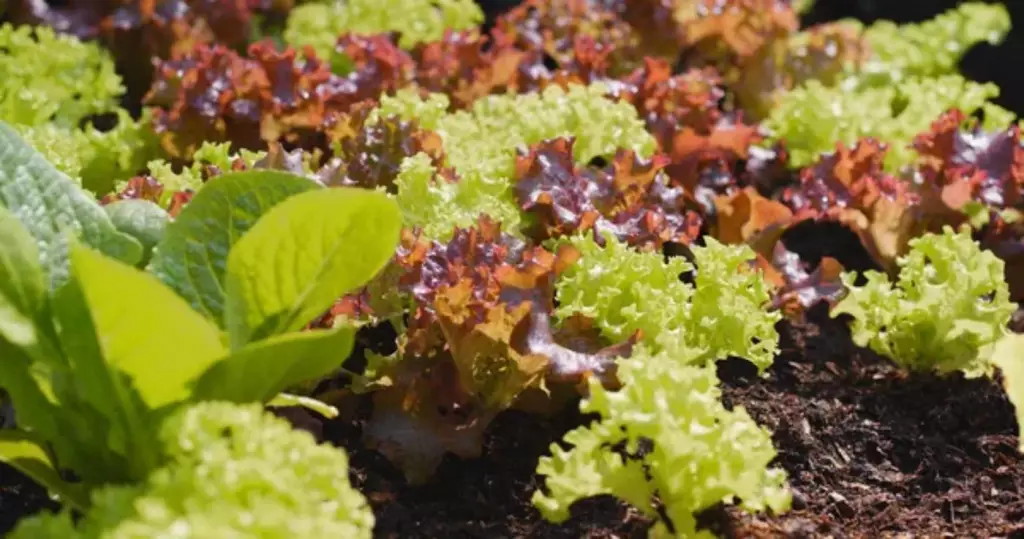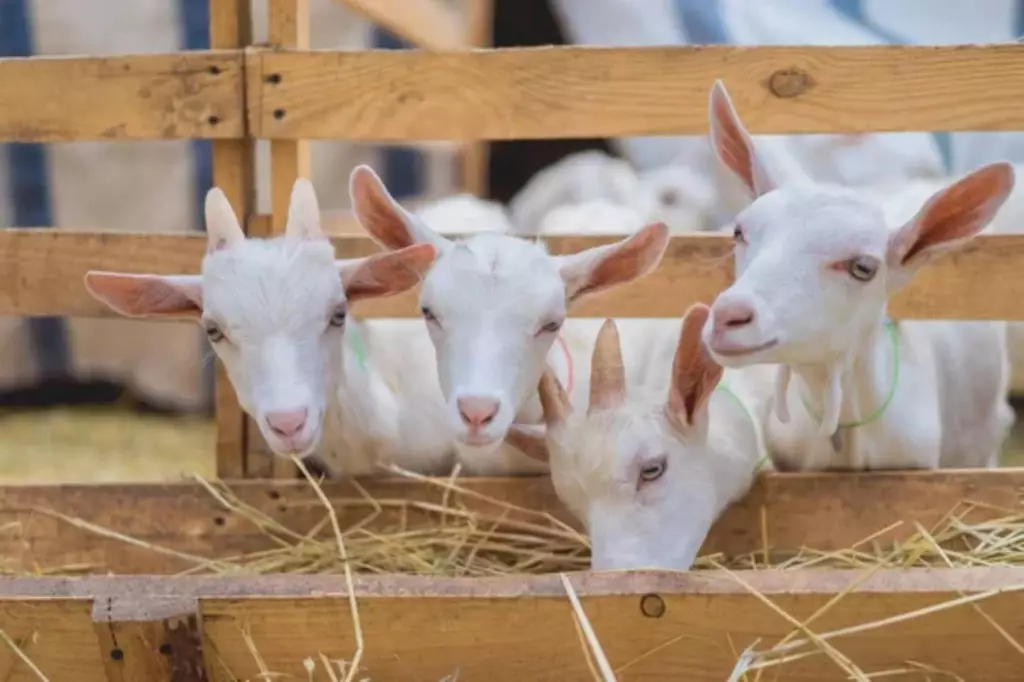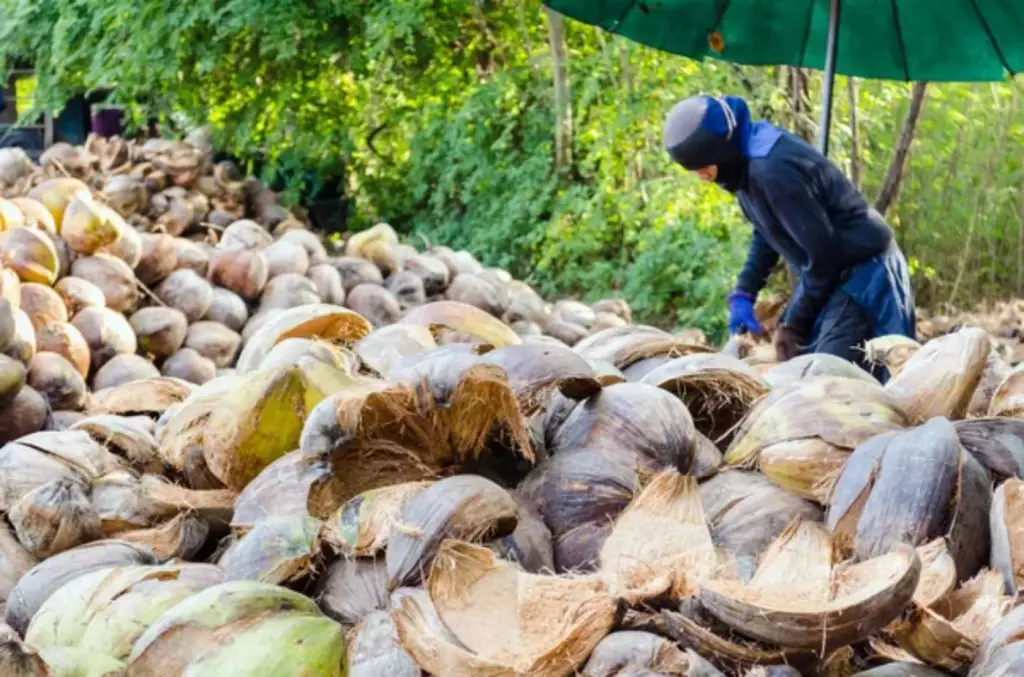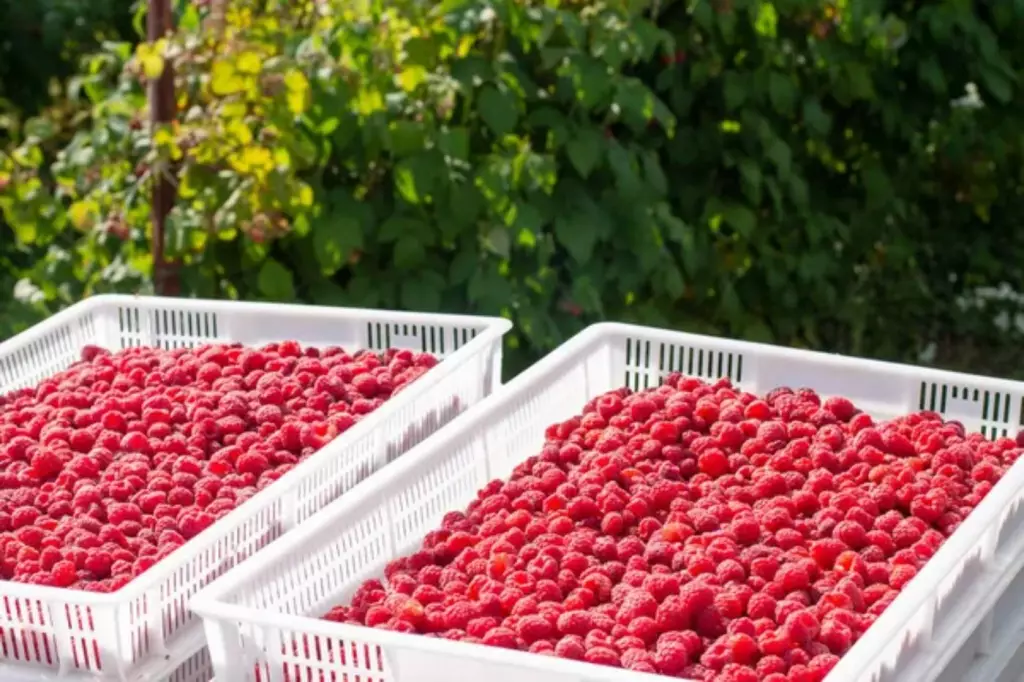7 Ways to Make Money as a Small Farmer
Small farming can be much more than just a way to connect with the land and grow your own food; it can also be a viable source of income. In this article, we'll explore strategic approaches and innovative ideas to make your small farm flourish financially.
Some potential options to make money from a small farm include cultivating a range of cash crops that are in demand, such as organic vegetables or specialty herbs. Additionally, value-added products like homemade jams or cheeses can significantly increase your profit margins.
It's also worth exploring agritourism, which can encompass everything from farm stays to educational workshops, tapping into a growing interest in farm life and providing another lucrative revenue channel.
Summary
- Raising livestock and farm animals, such as chickens for eggs and meat, goats and sheep for dairy and wool, and bees for honey and beeswax production, can provide multiple streams of income through products like meat, eggs, dairy, and wool.
- Implementing innovative farming techniques, such as organic farming and permaculture, fish farming and aquaculture, and mushroom farming, can significantly contribute to the profitability of small farming ventures.
- Cultivating high-yield vegetables and fruits, specializing in herbs and microgreens, and starting a plant nursery or market garden are viable options for small farms to generate profits.

On this page:
The table below shows diverse options on how to make your small farm profitable:
| Small Farm Ideas | Estimated Annual Profit Range |
|---|---|
| Cultivating crops for revenue | $10,000 - $50,000 |
| Raising livestock and farm animals | $20,000 - $100,000 |
| Applying innovative farming techniques | $5,000 - $30,000 |
| Expanding through agritourism | $15,000 - $80,000 |
| Exploring farm-based business ventures | $10,000 - $60,000 |
| Enhancing income with value-added services | $5,000 - $40,000 |
| Managing the business side of farming | $8,000 - $40,000 |
Cultivating Crops for Revenue
To establish a profitable small farming operation, first, consider the type of crops that offer not just high yields but also suit local market needs and climate conditions.
Your crop choices and farming strategies directly influence revenue generation, so you might want to focus on crops that have demonstrated high profitability and suit your available resources and expertise.

Growing high-yield vegetables and fruits
Your success in high-yield vegetables and fruits begins with choosing the right varieties. Optimize your profits by focusing on crops like strawberries and heirloom tomatoes, which are both popular and can fetch premium prices at markets.
| Crop Type | Expected Yield | Market Demand |
|---|---|---|
| Strawberries | High | High |
| Heirloom tomatoes | Moderate | High |
| Leafy greens | High | High |
Plan your planting schedule so that you can provide a continuous harvest, ensuring a steady income stream. Pay attention to the time it takes from planting to harvest; selecting crops with shorter growing cycles can let you grow more than one crop per season, maximizing yield.
Specializing in herbs and microgreens
Herbs and microgreens require less space and can often be harvested multiple times per season, which makes them an excellent choice for boosting profitability on a small farm.
| Herb/Microgreen | Harvest Cycle | Niche Appeal |
|---|---|---|
| Basil | Short | High |
| Cilantro | Short | High |
| Radish microgreens | Very short | High |
The often high demand in local restaurants and farmers markets for fresh, organic herbs and microgreens translates into a potentially lucrative niche for you.
Start with popular herbs like basil or cilantro, and microgreens such as radish and pea shoots, as these are both favored for their flavor, the quick turnaround time from seedlings to harvest, and their viability and profitability in aquaponics.
Starting a plant nursery or market garden
Creating a plant nursery or market garden involves cultivating a variety of plants, from flowers to vegetable seedlings, to sell directly to consumers or local businesses.
| Nursery Product | Care Level | Customer Interest |
|---|---|---|
| Flower seedlings | Moderate | High |
| Vegetable starts | High | High |
| Ornamental plants | Varies | Moderate |
By offering a diverse selection, you appeal to a broad range of customers, including those looking to start their own gardens or enhance their homes with ornamental plants.
This approach allows you to have several revenue channels and can ensure a balance between high and low-maintenance plants, optimizing for both labor and profitability. To learn more about how to lay the foundation of a tree nursery from scratch, check out this article.
Raising Livestock and Farm Animals
Embarking on livestock and farm animal rearing can provide multiple streams of income through products like meat, eggs, dairy, and wool. Your success hinges on choosing the right animals to manage, understanding their care requirements, and marketing their by-products effectively.
Managing chickens for eggs and meat
Chickens are a cornerstone of farm life, known for their dual-purpose utility: providing both eggs and meat. To maximize your flock's productivity, ensure they have a comfortable coop, consistent access to fresh water, and a diet rich in nutrients.
Selling eggs can become a steady income while offering meat can cater to local markets interested in high-quality, farm-raised poultry.

Breeding goats and sheep for dairy and wool
Goats and sheep offer diverse earning opportunities, especially in dairy and wool. Goats can be milked to produce cheese, yogurt, and milk products.
Sheep's wool, on the other hand, is sought after for its natural warmth and durability. Managing these animals requires:
- Adequate fencing to protect them from predators
- Routine health checks
- Proper feeding regimes
Exploring bees for honey and beeswax production
Bees play a pivotal role on a farm, not just for the production of honey and beeswax, but also for pollinating crops. Your venture into beekeeping involves maintaining healthy hives, which will in turn reward you with products that are in high demand.
You can sell your honey at farmer's markets or online, and beeswax can be turned into candles, balms, and various artisanal products. However, always prioritize safety and proper handling, as beekeeping comes with its own set of challenges.
Applying Innovative Farming Techniques
In today's agriculture scenario, you have numerous innovative techniques available that can turn your small farming venture into a profitable business, such as the following:
Implementing organic farming and permaculture
Adopting organic farming practices allows you to harness the synergistic relationships between plants, animals, and microbes to create a self-sustaining ecosystem on your farm.
By integrating permaculture principles, you can design farming systems that mimic natural ecosystems, reducing the need for artificial inputs and improving the health of your soil.
Key practices include composting organic waste to enrich the soil, using cover crops to protect and nourish the ground, and planting a diversity of crops to increase resilience against pests and diseases.
- Composting: Create your own nutrient-rich compost from farm waste.
- Crop diversity: Plant a variety of seeds that benefit each other.
- Natural pest control: Use beneficial insects and companion planting.
Trying fish farming and aquaculture
Aquaculture can be a lucrative addition to your farming operations if you have access to a reliable water source. It involves raising fish like oysters or other aquatic animals in tanks or enclosed water systems.
This method can be highly efficient as it often requires less space and can yield high outputs if managed correctly. To know how profitable fish farming can be, you can try reading this article.
In addition to fish farming, aquaponic systems can combine aquaculture with vegetable production, where the waste from the fish acts as fertilizer for the plants, and the plants, in turn, clean the water for the fish.
Experimenting with mushroom farming
Mushroom farming can be particularly profitable for small farmers due to the high demand and relatively low space requirements. Starting a mushroom farm can begin with just a small area and expand as you refine your growing techniques.
Mushrooms thrive in moist conditions and can be grown on substrates made from agricultural waste products. This process not only yields a profitable crop but also helps in recycling organic matter that would otherwise not be utilized.
Expanding Through Agritourism
Incorporating agritourism into your small farm's business model can open up new revenue streams while connecting with the community.
By inviting the public onto your farm, you create memorable experiences that can turn visitors into repeat customers and word-of-mouth advocates.
Offering farm tours and petting zoo experiences
You can enrich visitors' knowledge and appreciation for farming by providing guided farm tours. Share the ins and outs of your day-to-day operations, the cycles of the seasons, and the work that goes into producing the food they enjoy.
Add a petting zoo as a key attraction especially for families, letting kids and adults alike interact with friendly farm animals. This hands-on experience brings a sense of joy and fosters a deeper connection with animals and agriculture.
Establishing a U-Pick operation or pumpkin patch
Create an interactive farm experience with a U-Pick operation. Allow customers to harvest their own fruits and vegetables directly from the field, which not only offers them fresh produce but also a fun activity.
Seasonally, a pumpkin patch can attract families searching for the perfect jack-o'-lantern or holiday display. By enabling visitors to pick their own pumpkins, you're offering a festive and photogenic activity that's perfect for social media sharing.
Hosting workshops and classes on farming skills
Engage with your community and share your expertise by hosting workshops and classes on various farming skills.

From cheese making to organic gardening techniques, these educational sessions can cater to a range of interests, providing value to your attendees and an additional source of income. Tailoring classes to the seasons keeps your offerings fresh and encourages year-round visitation to your farm.
Exploring Farm-Based Business Ventures
Exploring farm-based business ventures offers you the chance to diversify your income streams. From crafting unique handmade goods to capitalizing on specialty products and embracing online platforms, you can turn your passion for farming into profitable opportunities.
Crafting and selling handmade goods
You possess a unique opportunity to create and market handmade goods directly from your farm. Whether it's crafting soap from goat's milk, weaving jewelry from beads and natural materials, or assembling beautiful cut flowers for bouquets, each product carries the essence of your farm's character.
Platforms like Etsy are ideal for reaching customers who appreciate the authenticity and story behind each item you create.
Developing a niche with specialty products
By zeroing in on specialty products, you set your small farm apart. This might involve cultivating uncommon heirloom varieties, offering organic seeds for rare flowers or plants, or even producing gourmet mushrooms.
Specialty products not only attract a niche market willing to pay a premium for them but also establish your brand as an expert in that particular niche.
Setting up an online store or blog
In the digital era, having an online store can significantly broaden your market. It allows you to sell your farm products, like gardening supplies or flowers, further than your local region.
Moreover, starting a blog about your farming adventures can draw in readers interested in your farming lifestyle. It can also serve as a platform for supplemental income through advertising or affiliate marketing.
Enhancing Income With Value-Added Services
To diversify your small farm income, perhaps consider adding value to your products and services. Value-added services can help you not only make more money but also build a stronger relationship with your customers by offering unique, personal experiences.
Producing and marketing farm-fresh products
Your farm's produce isn't just a product; it represents your hard work and the uniqueness of your land. By turning your fresh fruits and vegetables into gourmet preserves, artisanal cheeses, or natural skincare products, you increase their value and shelf life.

Take, for instance, your tomato harvest: you can sell fresh tomatoes, but turning a portion into a line of signature tomato sauces or salsas can attract a new customer base and generate income year-round.
To market your products, you can use visually appealing packaging, and harness the power of social media to reach local food enthusiasts. The host stands at nearby farmers' markets and creates a visually inviting display of your products to engage potential buyers, highlighting the story and dedication behind each jar, bottle, or package.
Building accommodations for farm stays and Airbnb
You can consider leveraging the charm of your farm by offering overnight stays. This can be as simple as establishing a quaint bed and breakfast in your farmhouse or as elaborate as creating a unique glamping site within your orchards or gardens.
Ensure your listings on platforms like Airbnb emphasize the opportunities for guests to immerse themselves in farm life, such as participating in daily chores or enjoying a farm-to-table meal.
Remember, it's not just about providing a place to sleep; it's the experience that counts. Offer additional services like guided farm tours, cooking classes using your own produce, or seasonal activities like pumpkin picking or springtime garden plantings.
Managing the Business Side of Farming
To thrive as a small farmer, you need to not only focus on cultivating your crop or raising your livestock but also give equal attention to the financial and promotional aspects of your operation.
Consider your farm as an enterprise that requires strategic planning in marketing, managing finances, and adapting to seasonal changes to maximize profits and ensure sustainability.
Utilizing effective marketing and branding strategies
Your farm's success is significantly influenced by how well you market your products and establish your brand. Start by identifying your unique selling proposition (USP) and leverage it across various marketing channels.
This could include creating a professional website, engaging with customers on social media, and packaging your products in a way that reflects the quality and values of your farm.
Always make sure that your branding is consistent; this means using the same logos, color schemes, and messaging across all platforms to build a recognizable and trusted brand.
Planning for seasonality and diversifying income streams
Understanding and planning for the seasonal nature of farming will help you maintain a steady income throughout the year.
Perhaps, consider crop rotation and off-season production techniques such as greenhouses or indoor farming to provide products year-round.
Additionally, exploring multiple income streams helps safeguard against bad weather or market fluctuations. Ideas to diversify might include agritourism, offering farm stays, hosting educational workshops, or even renting out your property for events.
By planning for seasonality and being innovative with your income streams, you can create a more resilient and profitable small farm business.



